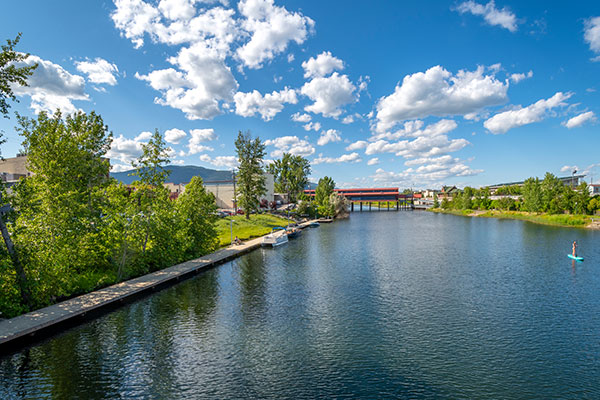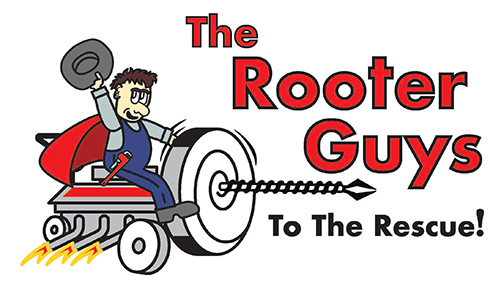Plumbing and Septic Specialists in Sandpoint, ID
A clogged drain can be embarrassing. Directing your visitor to a clogged toilet is something you will never like. However, if you notice backed-up drains, there could be several issues within the entire system. But how do you know whether to call a plumber or septic service provider? You might be surprised to discover that the two professions require different specialists. But this should not worry you anymore. If you are in Sandpoint, ID and need a plumber and excavator, I have good news for you. The Rooter Guys is ready 24/7 to ensure your plumbing issues are perfectly solved.
Plumbing and Septic Services
As earlier stated, there is a significant difference between plumbing and septic services. Each one requires specialized personnel to detect any challenge in the drainage system.
Plumbers specialize in piping works throughout the house. Their starting point is your home or commercial building water supply. Once you have a water supply, the plumber installs water radiators, boilers, dishwashing, toilet, and valves. In addition, plumbers offer plumbing services, renovations, and repair of the water drainage line.
Here are a few essential plumbing services a plumber can offer to your house:
- Upkeep of pipelines and valves
- Repair of water jets
- Heater, softener, and filtration of water
- Main pipe cleaning
Aside from plumbing, septic companies deal with the septic system outside your home. This involves the septic tank, which holds all the wastewater from the house.
Plumbing
Good plumbing goes with good septic services. All water should be well directed to the septic tank with proper piping. The septic tank holds the waste until all solids settle down. The liquid wastewater finally gets discharged through piping to the drain field, where it finally percolates into the soil.
Septic pumping
Pumping is the process of sludge removal from the bottom of the septic tank. Septic needs to be checked regularly to know the right time to pump. Systems that are undersized or heavily used should be pumped periodically. You can reduce the frequency of pumping by reducing water usage, directing rainwater away from the drain field together with reducing solid waste. Signs of filled septic include:

Slow Drains
If your water outlets are draining more slowly than usual, it could be a sign that your septic tank is full. You may notice that the kitchen sink or bathroom tub no longer drains as quickly as it once did.
If this happens, now would be a good time to contact us to investigate the issue.

Sewage Backup
In addition to saving yourself the mess and the work of draining and cleaning your grease trap, our drain and grease trap cleaning services can also eliminate the risk of injury and need for cleanup.

Pooling Water
If stagnant water accumulates near your septic tank location, you may have a full septic tank. Don’t worry yourself searching for professionals, as the Rooter Guys are always ready to help. Our professionals have the right technology to examine the site and determine the real cause of the pooled water. They will determine if the cause of fullness is a clogged system and implement strategies to unclog it.

Abnormally Green Grass
When your septic tank is functioning normally, the grass over the top should be healthy unless other factors come into play. A full septic tank may cause the surrounding grass to turn lash green. If you notice this, it’s time to call our professionals to check it out. You probably have a full septic that needs draining. Call our team today to have that sorted out for you.
Excavation
Septic tank installation involves:
- Placing the tank in the ground.
- Digging a hole to accommodate the tank.
- Connecting the main sewer line to the tank outlet.
- Pouring concrete and other materials into it.
Our experts will use an excavator to break up dirt or other debris. Then, water is forced into the area by a tumbler pump.
Before setting up your septic pump, you need all the equipment, like back holes and excavators. Our trained excavation service professionals are ready to dig you out in any situation.
Frequently Asked Questions (FAQs)
In our interactive sections with our customers, many questions arise. Some of the frequently asked questions are:
Is septic the same as plumbing?
Septic is different from plumbing. You might be surprised to learn that they require different expertise. Plumbers deal with piping throughout your house, while septic service involves a septic tank outside your home. However, our company has all these experts that you need to sort out your entire system issues.
What is septic plumbing?
A good septic system consists of a septic tank and a drain field. Septic plumbing involves burying perforated pipes or other special units designed to release wastewater to the drain field. This process is to ensure only solid matter is left in the tank.
How do I know if my septic line is clogged?
It is easy to know when your septic line is clogged. Here are the significant signs of clogged septic:
- Stagnant water or damp spots near the septic tank or drain field.
- Algal blooms in nearby ponds or lakes.
- Backed up water from all plumbing sites: toilets, drains, and sinks.
- Slow draining in the bathtubs, showers, and sinks.
- When you observe these signs anytime in your house, contact us for a quick response.
